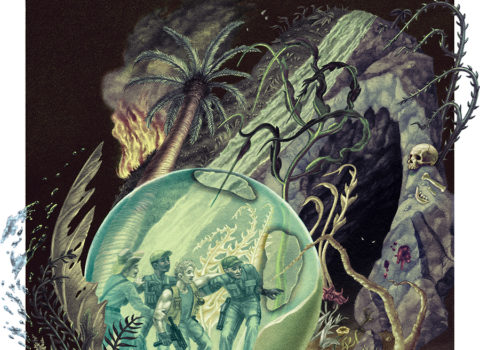As the new year began (and following a year-ending week of memoir-bashing), I offered a short list of memoirs for which I maintain unreserved admiration. Alas, in the intervening days, I have been haunted by some of the language I used to describe one of the suggested titles. In particular I wrote, foolishly, that
Robert Graves’s Goodbye to All That is my favorite full length memoir…
But “favorite” is a silly word to use to describe a book, much as for an adult the phrase “my best friend” is a suspiciously needy marker. Why saddle a book with favoriteness; why hobble the gait of intimacy with the heavy boots of bestness? For there are, with books, inevitably, many favorites–or so it seemed all too clear to me in the days since I announced my favoritism, as the astonished faces of any number of books I’ve spanned time with stared woundedly at me from the shelves. One such book begins:
In October, 1917, we had succeeded, my friend B. and I, in dispensing
with almost three of our six months’ engagement as Voluntary Drivers,
Sanitary Section 21, Ambulance Norton Harjes, American Red Cross, and at
the moment which subsequent experience served to capitalize, had just
finished the unlovely job of cleaning and greasing (nettoyer is the
proper word) the own private flivver of the chief of section, a gentleman
by the convenient name of Mr. A. To borrow a characteristic-cadence from
Our Great President: the lively satisfaction which we might be suspected
of having derived from the accomplishment of a task so important in the
saving of civilization from the clutches of Prussian tyranny was in some
degree inhibited, unhappily, by a complete absence of cordial relations
between the man whom fate had placed over us and ourselves. Or, to use
the vulgar American idiom, B. and I and Mr. A. didn’t get on well.
If memory doesn’t, this link will tell you the name of the book around which this week’s posts revolve and which these three sentences initiate. Like the Graves, here begins a memoir of the First World War. Like the Graves, we have the story of a kind of disaffection, but one entirely distinct from Graves’s. The language to be found in both books is notable, in part surely due to the work in poetry that both men would undertake. But where there is, in the Graves, an unquestioning faith in the stuffed syntax of a phrases like–
For while maps are the biographical treatment of geography, biography is the geographical treatment of chaps. Chaps who are made the subjects of biography have by effort, or by accident, put themselves on the contemporary map as geographical features; but seldom have reality by themselves as proper chaps.
–the book quoted from above mines the same syntactical resources but pitched an octave higher into a sustainedly arch register. Though there is a touch of Twain to the three sentences above, from to “the own private flivver of the chief of section,” to the flagged “characteristic-cadence” in which information is delivered, to call the tone of the above satirical, or merely satirical, would miscast the enterprise which this delicious tone ends up serving so well. How better to write about one’s own pomposity and presumption than in a tone that would, if not excuse it, confuse our relation to such presumption. The book tells of all the trouble one can get in if one does as its author did. It’s trouble one wouldn’t likely want (except for those desperate authors in search of stunt books) but that cannot but come off, in this unique telling, as charming.
“Charming” is not a word that thrills, conjuring as it may for many the image of an émasculé. But the magic in the word is thing to which to cleave–the ability of the charming thing to charm, to cast a spell, to stun, to stop one in one’s tracks, turn to stone, salt, tears. I will cleave further to the book above, a singular favorite memoir of mine among several, on Wednesday.
































































































